About The Carolina Center for Behavioral Health Greer
The Carolina Center for Behavioral Health Greer is located in Greer, South Carolina. This is a comprehensive recovery center that provides a range of services to adults, adolescents, seniors, and their families. They have services if you’re struggling with your behavioral health or are seeking treatment for a substance use disorder. Care is offered in an inpatient setting and you’ll also find outpatient care along with intensive outpatient care. They accept policies from most major insurance providers. Speak with your provider because out-of-network benefits may apply.
Their substance use recovery program serves adults navigating an addiction to drugs, alcohol, and other substances. Care starts with an initial assessment where the treatment team will uncover your recovery needs. If you have an underlying co-occurring mental health struggle then that will be assessed and treated as well.
The inpatient program here offers detox support. Your detox will be overseen by a trained medical professional who will ensure your withdrawal symptoms are managed safely. Medication-assisted detox is available here.
Once your body reaches a point of stabilization then you’ll move on to treatment. They follow a 12-step recovery process. This process includes a combination of individual and group therapy sessions. Addiction education sessions are also available to help you establish healthy habits.
You’ll learn critical coping skills and strategies that will influence your recovery. There are also family therapy and family education sessions designed to help your loved ones learn how to best support you as well.
There’s a specialized adult chemical dependency intensive outpatient program (IOP). This program will help you build your communication skills and life skills for an improved chance at sustainable sobriety.
Addiction Treatment Programs
Alcohol Rehab
In South Carolina, an alcohol rehab provides a combination of therapy and education to help clients overcome alcohol misuse. Whether you need detox, inpatient treatment, or outpatient care, an alcohol program will help you build a new lifestyle based on healthy coping mechanisms, better relationships, and a new way of thinking about life.
Dual Diagnosis
When you have a dual diagnosis, you have mental health and substance use concerns. It’s important to choose a rehab in South Carolina that can treat both. Whether you need detox, inpatient treatment, or outpatient care, a dual diagnosis program will offer specific support for your mental health needs alongside traditional substance use treatment.
Opioid Addiction
Rehab in South Carolina helps clients find the motivation to make a change and gives them the tools to break free from opioid addiction and achieve long-term sobriety. During this program, you’ll work with professional counselors to deal with the psychological, emotional, and physical issues that opioid misuse can cause. Over time, you’ll learn how to live without substance use long-term.
Young Adult Rehab
Young adult rehabs in South Carolina help young people overcome substance use and learn new life skills. Whether you need detox, inpatient treatment, or outpatient care, a young adult program will offer specific support for your emotional, mental, and social needs.
Adult Program
Those who join an adult program in South Carolina are given training in key life skills to help them with parenting, their career, and more. Whether you need detox, inpatient treatment, or outpatient care, an adult program will offer specific support for your emotional, mental, and social needs.
Senior Rehab
If you’re older, finding a senior rehab in South Carolina can make all the difference in helping you overcome substance use. Whether you need detox, inpatient treatment, or outpatient care, a senior program will offer specific support for your physical, emotional, mental, and social needs.
Men's Rehab
If you’re a man struggling with substance use, consider a men’s rehab program in South Carolina. Whether you need detox, inpatient treatment, or outpatient care, a men’s program will offer specific support for your emotional, mental, and social needs.
Women's Rehab
A women’s rehab in South Carolina addresses the recovery needs of female clients and gives them the tools they need to succeed. Whether you need detox, inpatient treatment, or outpatient care, a women’s program will offer specific support for your emotional, mental, and social needs.
Insurance Coverage
Private insurance
How do you pay for rehab in South Carolina? If you have private insurance, consider using it to pay for some or all of the costs of treatment. You may have out-of-pocket costs such as a deductible or copay, and you’ll want to look for a treatment center in-network with your insurance coverage.
Self-pay options
If you want maximum flexibility in choosing a treatment center in South Carolina, you might choose to use self-pay. This involves using a medical loan, writing a check, or sending money to the center electronically. Fee structures may vary depending on the level of care.
Financial aid
When looking for ways to pay for rehab in South Carolina, consider asking about financial aid programs. Treatment centers may offer grants or scholarships that make it easier for those who are lower-income to get the care they need. Contact the treatment center you’re interested in for details.
Medicare
If you’re looking for ways to pay for rehab in South Carolina, consider using Medicare. Keep in mind that Medicare plans vary, so it’s important to check on coverage information and to find out which treatment centers accept your coverage.
Military insurance
For those who qualify, military insurance is a good way to pay for substance use treatment in South Carolina. Your insurance plan can pay for some or all of the costs of rehab, especially if you choose a center that’s in the plan’s network. Be sure to check with the insurer to get full details.
Medicaid
If you qualify, Medicaid can help pay for some or all of the costs of rehab in South Carolina. Using Medicaid keeps your costs, if there are any, very low. You can access any type of care, including detox, inpatient, and outpatient.
Levels of Care
- 1
Detox Treatment
When you enter rehab in South Carolina, the first step is to allow the substances to leave your system, which is known as detox. Most detox programs last around one week, although some are longer. You will generally receive medical treatment for withdrawal symptoms as well as treatment planning for the next stage of rehab.
- 2
Inpatient Rehab
If you want or need to focus on recovery without distractions, consider inpatient treatment in South Carolina. During inpatient treatment, clients are able to work on their recovery through counseling, activities, and holistic treatment like mindfulness, art therapy, and more.
- 3
Outpatient Rehab
During outpatient treatment in South Carolina, clients receive evidence-based treatment while living at home or in sober living. Building a new life for yourself takes time, and it’s important to have enough support throughout the process. Outpatient treatment allows you to have more intensive or less intensive help, depending on your needs.
- 4
Aftercare Support
During aftercare in South Carolina, clients will receive ongoing support that makes it easier to practice their new habits and maintain recovery. Some aftercare programs will help you connect to community resources and social services in your area, from housing to healthcare to financial assistance.
Therapies
Cognitive Behavior Therapy
Cognitive behavioral therapy in South Carolina can help you challenge the thoughts behind your emotions and actions. Substance use treatment includes detox, inpatient treatment, and outpatient care, and CBT may be a part of each of these stages. The goal is to help clients identify distorted thinking, replace it with rational thinking, and change their responses accordingly.
Dialectical Behavior Therapy
Dialectical behavioral therapy in South Carolina can help you build confidence and develop healthy coping skills. Substance use treatment includes detox, inpatient treatment, and outpatient care, and DBT may be a part of each of these stages. The goal is to help clients develop the skills they need to solve the problems they face without substance use.
Experiential Therapy
The goal of experiential therapy in South Carolina is to help you process your emotions and gain confidence in your ability to create positive change. By participating in art, music, or physical activities like hiking, you can learn to face internal issues without turning to substance use. Instead, you’ll develop healthy coping mechanisms.
Family Therapy
During family therapy in South Carolina, clients have a supportive environment to talk with family members about conflict and unhealthy behaviors that may trigger substance use. There are several goals in family therapy. Some sessions may be focused on specific past events, while others address current broken relationships or how good intentions have gone astray. Over time, family relationships can be restored, making recovery easier.
Group Therapy
During group therapy in South Carolina, clients have a safe environment to share their struggles with others going through similar issues. Substance use treatment includes detox, inpatient treatment, and outpatient care, and group therapy may be a part of each of these stages. The goal is to help clients support each other, provide accountability, and relate to each other’s experiences.
Individual Therapy
Individual therapy in South Carolina is led by a professional therapist who talks to you about your specific experiences and emotions. Some of the topics covered in individual therapy include developing healthy coping skills, addressing past events that may have played a part in substance use, and building a support network.
Accreditations
Location
Contact The Carolina Center for Behavioral Health Greer
Top Drug Rehab Centers in South Carolina
-
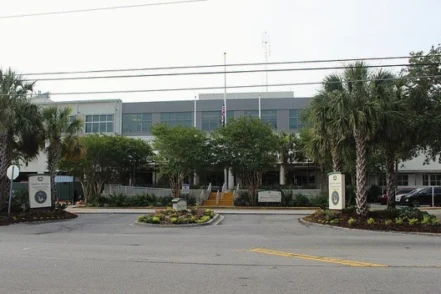 South Carolina
South CarolinaRalph H Johnson VA Medical Center
109 Bee Street Charleston, South Carolina 29401
-
 South Carolina
South CarolinaAce Recovery for Men ARM
1477 Ted Melton Road Chesterfield, South Carolina 29709
-
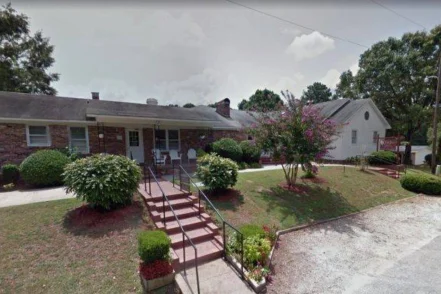 South Carolina
South CarolinaFaith Home Christian Recovery
144 Faith Home Road Greenwood, South Carolina 29648
-
 South Carolina
South CarolinaGrace Home Vance
501 Ltd Rd., Suite 16 Vance, South Carolina 29163
-
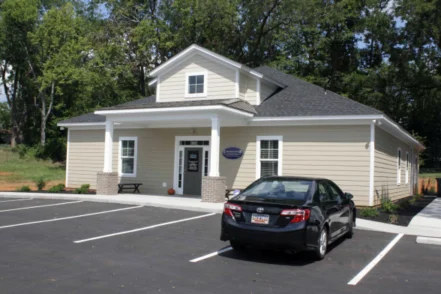 South Carolina
South CarolinaCornerstone Abbeville
103 Whitehall Street Abbeville, South Carolina 29620
-
 South Carolina
South CarolinaRecovery Concepts Easley
1653 East Main Street Easley, South Carolina 29640
-
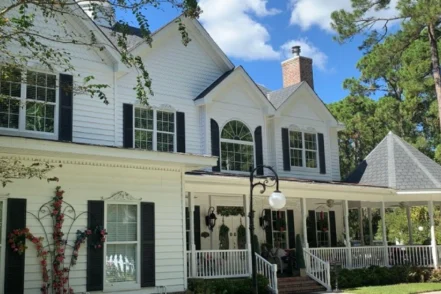 South Carolina
South CarolinaBriteLife Recovery
2200 Main Street Hilton Head Island, South Carolina 29926
-
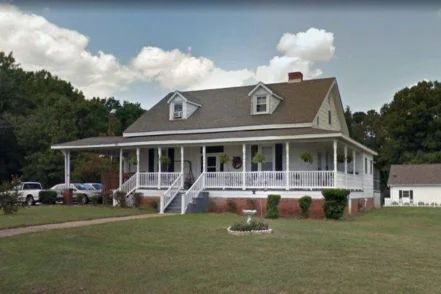 South Carolina
South CarolinaOaks Recovery Center Greenwood
711 East Scotch Cross Road Greenwood, South Carolina 29646
-
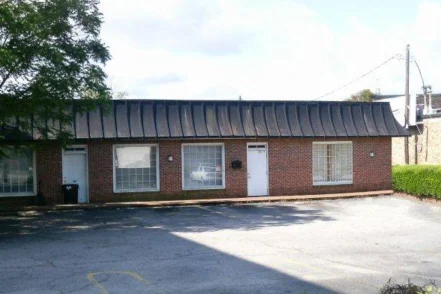 South Carolina
South CarolinaCrossroads Treatment Centers
1421 Bluff Road Columbia, South Carolina 29201
-
 South Carolina
South CarolinaCenter for Behavioral Health North Charleston
2301 Cosgrove Avenue, Suite F North Charleston, South Carolina 29405



